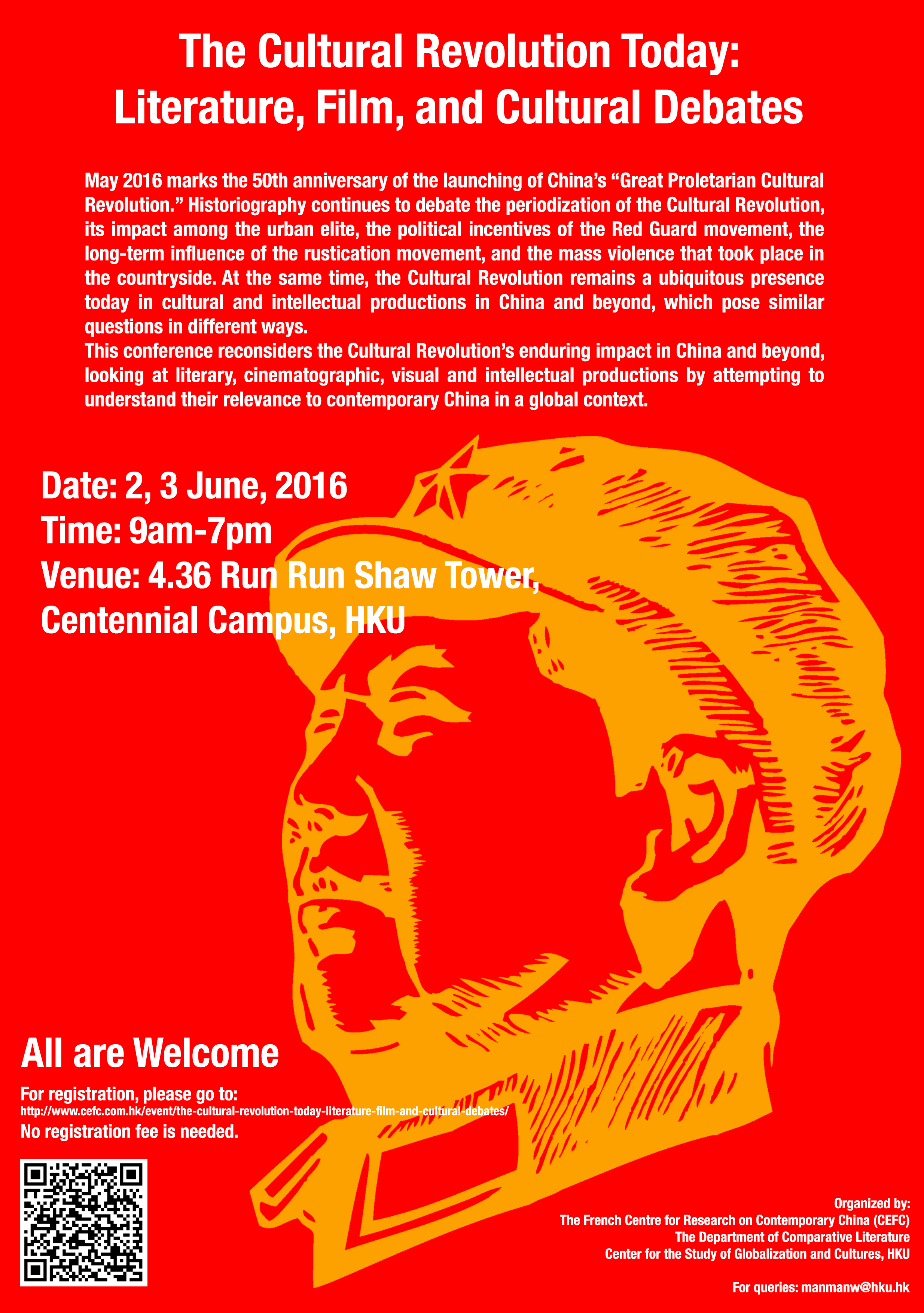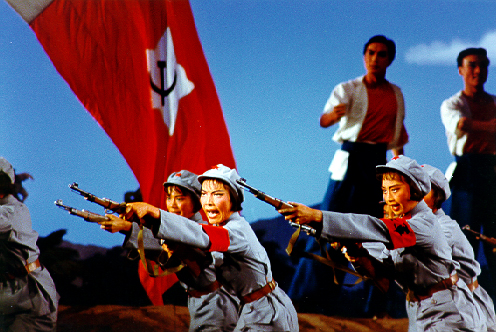ORGANIZER:
French Centre for Research on Contemporary China (CEFC). The Department of Comparative Literature, The University of Hong Kong and Center for the Study of Globalization and Cultures
LANGUAGES:
Englis
PROGRAM:
For further information of the conference, please click here
ARGUMENT:
May 2016 marks the 50th anniversary of the launching of China’s “Great Proletarian Cultural Revolution.” Historiography continues to debate the periodization of the Cultural Revolution, its impact among the urban elite, the political incentives of the Red Guard movement, the long-term influence of the rustication movement, and the mass violence that took place in the countryside.
At the same time, the Cultural Revolution remains a ubiquitous presence today in cultural and intellectual productions in China and beyond, which pose similar questions in different ways. Whereas scar literature and the “wholescale rejection” of the Cultural Revolution marked the cultural scene in the 1980s, this focus was subsequently criticized as too limited in scope, too dependent on the framework of government discourse, or too elitist. Films and fiction of the 1990s took a more irreverent approach, as a younger generation assessed the Cultural Revolution decade through its own unique experience, and New Left intellectuals attempted to salvage democratic experiments within the Cultural Revolution. Commodification of Maoist kitsch trivialized the Cultural Revolution experience and gave rise to new visual cultures. In the 2000s, renewed attention was given to grassroots violence and the political roots of the Cultural Revolution project.
This conference reconsiders the Cultural Revolution’s enduring impact in China and beyond, looking at literary, cinematographic, visual and intellectual productions by attempting to understand their relevance to contemporary China in a global context. The conference will consist of presentations of fifteen-twenty minutes in length, and English will be the language used for the event.


